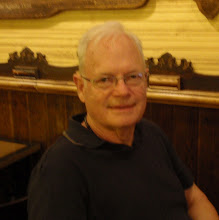On Academic Freedom: The Buffalo Chapter Agenda Item for the UUP Delegate Assembly, February 4-5, 2011
by Paul Zarembka, January 29, 2011
The Buffalo Chapter agenda item for the Winter DA calls for UUP accountability and prospects with regard Article 9 Academic Freedom in the compelling context of voting about leaving AAUP.
The item criticizes no unionist and does not depend upon the history below. It asks our UUP President to provide a report, including future defense of academic freedom under existing contract language. It gives him an opportunity. The resolution also calls upon our VP-Academics, assisted by our VP-Professionals, to follow up by arranging a workshop at the Fall 2011 DA. It promotes information and discussion.
The Buffalo Chapter resolution does not mandate anything except being quite serious about Article 9, after we vote about leaving the premiere association concerned with academic freedom, AAUP. Below is the background, from my perspective. No one else is responsible for it.
History within UUP and the Academic Freedom Case at Buffalo
Since 1980, UUP has not carried through to arbitration any Article 9 Academic Freedom case.
The recent academic freedom case at SUNY-Buffalo for a Polish adjunct faculty member arose a year ago and was grieved at Step 1, UUP-represented. I am the chapter Grievance Officer for Academics. Denial at Step 1 was no surprise. However, President Phil Smith killed the grievance before even going to Step 2.
The argument Phil (himself or via Martin Coffey) made to me -- without reference to the Step 1 decision contents -- was that, since the grievant was a full-time but temporary employee, the university was free to dismiss him mid-appointment, did not need to give under the contract a reason to dismiss, and the faculty member had no academic freedom rights that could be won (nor, presumably, even a "settlement"). This Jagiellonian University faculty member was on a full-year teaching award to Buffalo granted by the Kosciuszko Foundation, the fourth teaching award this faculty member from Krakow had received to the U.S. These awards represent prima facie evidence of high teaching competence.
In this case, the UB campus administration provided reasons that rose to violation of the academic freedom of a foreign guest. (So much for hospitality.)
Under contract law, Article 32 Notice of Non-Renewal cannot empty out other articles. Article 9 is without delimitation to a class of members. If an article such as Article 9 were legally empty for contingent members, then so would other articles bearing on contingents such as Articles 10, 11, 19, 20, 22, 23, 26, 27, 30, 31, 33, 34, 35, 36 and 39.
To clarify, suppose a set of contingent UUP members with fine records find their salaries suddenly dropped, contrary to wording in the contract (quite similar to something that has happened at Buffalo). When complaints are made, the members are non-renewed. Grievance on their behalf for retaliation would then be fully appropriate up through arbitration. Who would argue otherwise? The only difference from an Article 9 case is that academic freedom is less concrete than dollars in a paycheck. Or, suppose an adjunct becomes involved with UUP activism, goes to meetings under Article 11 rights, and becomes non-renewed against her right to go to UUP meetings. Who would argue against defending her through arbitration?
When I continued to argue the importance of the Buffalo case and asked Phil for a Step 2 filing extension, Phil did agree to request from SUNY an extension past the ten-working-day deadline. SUNY refused. I then asked that the UUP filing take place immediately. Phil refused, and that decision was conveyed to me via Martin Coffey.
I am very sorry to have to report what I witnessed: Phil's behavior represented an excuse for doing nothing for an adjunct and for academic freedom beyond the chapter level. He did not even give the adjunct grievant, devastated by his experience at Buffalo and back in Krakow, the minimal courtesy of a letter.
The Academic Freedom Case at Binghamton
The Fall 2009 Delegate Assembly passed a strong resolution supporting the academic freedom case of adjunct Sally Dear, named in the resolution. The Buffalo Chapter agenda item mentions her developing case, although it was adopted before her UUP-represented grievance filing of early December.
After the filing and after a Chronicle of Higher Education article of December 14 in which Dear reported the Binghamton chapter not being supportive of her, the Binghamton Chapter passed a statement, "The Exec Board of UUP Binghamton supports the principle and protection of academic freedom as defined by Article 9 of the Agreement for all faculty, including contingent, qualified rank, and tenure stream faculty. The exercise of academic freedom should never be used as a cause for disciplinary action or non-renewal of an appointment" (www.uuphost.org/binghamton).
Dear's Step 1 hearing was held on January 25, with the campus decision due February 8. Although contingent faculty member Sally Dear was non-renewed, she was determined by the Labor Relations Specialist assigned to her case to have her Article 9 Academic Freedom contractually violated and grievable. The LRS is implicitly rejecting the Binghamton campus President's statement and those in UUP who might argue that non-renewal Article 32 provides a campus carte blanche against a UUP contingent.
Subscribe to:
Post Comments (Atom)


No comments:
Post a Comment